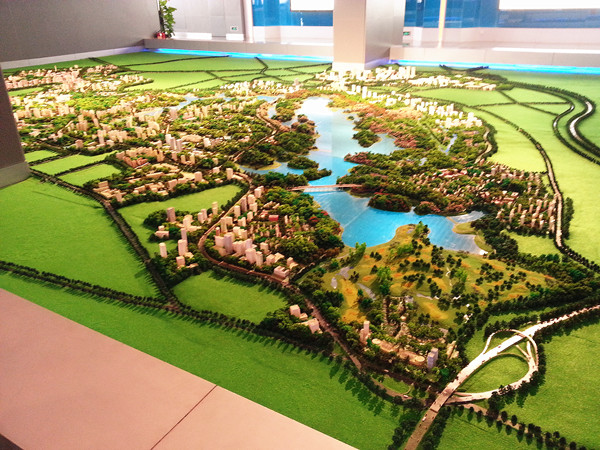Transforming the factory of the world
- By Chris Parker
 0 Comment(s)
0 Comment(s) Print
Print E-mail China.org.cn, November 21, 2013
E-mail China.org.cn, November 21, 2013
Dongguan, in southern China's Guangdong Province, is a place that many Western consumers have probably never even heard of, yet it is very likely that they own a number of pieces of clothing that are manufactured in the city.
|
|
|
Songshan Industrial Zone, Dongguan (exhibition model) [By Chris Parker/China.org.cn] |
One out of every three toys manufactured around the world and one in every five sweaters is made in Dongguan. Ever since 1978, when the first processing company, the Taiping Handbag factory was set up in the city, it has boomed, producing textiles, furniture and IT products at a breakneck pace.
With a hugely productive young workforce and US$700 billion of foreign investment, Dongguan's factories have been a huge force behind the 'made in China' phenomenon.
However, the city is finding that traditional labor-intensive low output value industries are no longer sustainable. Workers are demanding more than just a fixed job and a steady wage, they are looking for more holidays, greater pay and better working conditions, which has pushed production costs up, while competition from South East Asian countries with cheaper labor costs has driven many factories abroad.
As China continues its economic transformation, Dongguan's industrial structure is being given a complete overhaul.
"In the last few years, we have invested more than US$1bn in local companies, to introduce advanced technologies and upgrade equipment, in order to increase productivity," said Yao Kang, Deputy Secretary of the Dongguan Party Committee.
"The labor force in the city has changed, but we have a large population, more than ten million people, and only companies with low-efficiency production have suffered."
"Products like toys and clothing will always have a market, but the question is how to upgrade our industries."






